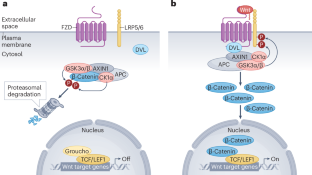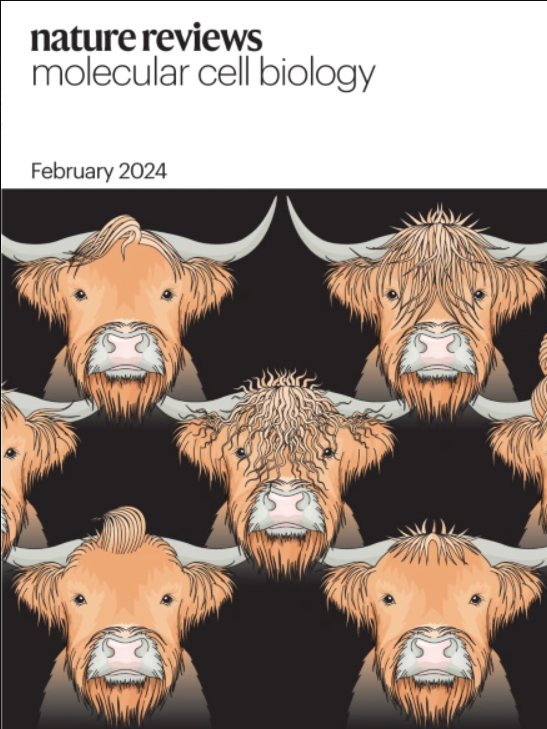Mechanistic insights into Wnt–β-catenin pathway activation and signal transduction
IF 90.2
1区 生物学
Q1 CELL BIOLOGY
引用次数: 0
Abstract
In multicellular organisms, Wnt proteins govern stem and progenitor cell renewal and differentiation to regulate embryonic development, adult tissue homeostasis and tissue regeneration. Defects in canonical Wnt signalling, which is transduced intracellularly by β-catenin, have been associated with developmental disorders, degenerative diseases and cancers. Although a simple model describing Wnt–β-catenin signalling is widely used to introduce this pathway and has largely remained unchanged over the past 30 years, in this Review we discuss recent studies that have provided important new insights into the mechanisms of Wnt production, receptor activation and intracellular signalling that advance our understanding of the molecular mechanisms that underlie this important cell–cell communication system. In addition, we review the recent development of molecules capable of activating the Wnt–β-catenin pathway with selectivity in vitro and in vivo that is enabling new lines of study to pave the way for the development of Wnt therapies for the treatment of human diseases. Wnt–β-catenin signalling regulates stem cell renewal, development and tissue homeostasis. In this Review, the authors examine recent findings concerning Wnt protein production, receptor activation and intracellular signalling, focusing on the regulation of the β-catenin destruction complex.


Wnt -β-catenin通路激活和信号转导的机制见解
在多细胞生物中,Wnt蛋白控制干细胞和祖细胞的更新和分化,以调节胚胎发育、成体组织稳态和组织再生。典型Wnt信号的缺陷是由β-连环蛋白在细胞内转导的,与发育障碍、退行性疾病和癌症有关。尽管描述Wnt -β-catenin信号传导的简单模型被广泛用于介绍这一途径,并且在过去的30年里基本保持不变,但在本综述中,我们讨论了最近的研究,这些研究为Wnt产生、受体激活和细胞内信号传导的机制提供了重要的新见解,促进了我们对这一重要细胞-细胞通信系统基础的分子机制的理解。此外,我们回顾了能够在体外和体内选择性激活Wnt -β-catenin通路的分子的最新进展,这些分子正在为开发用于治疗人类疾病的Wnt疗法铺平道路。
本文章由计算机程序翻译,如有差异,请以英文原文为准。
求助全文
约1分钟内获得全文
求助全文
来源期刊
CiteScore
173.60
自引率
0.50%
发文量
118
审稿时长
6-12 weeks
期刊介绍:
Nature Reviews Molecular Cell Biology is a prestigious journal that aims to be the primary source of reviews and commentaries for the scientific communities it serves. The journal strives to publish articles that are authoritative, accessible, and enriched with easily understandable figures, tables, and other display items. The goal is to provide an unparalleled service to authors, referees, and readers, and the journal works diligently to maximize the usefulness and impact of each article. Nature Reviews Molecular Cell Biology publishes a variety of article types, including Reviews, Perspectives, Comments, and Research Highlights, all of which are relevant to molecular and cell biologists. The journal's broad scope ensures that the articles it publishes reach the widest possible audience.

 求助内容:
求助内容: 应助结果提醒方式:
应助结果提醒方式:


